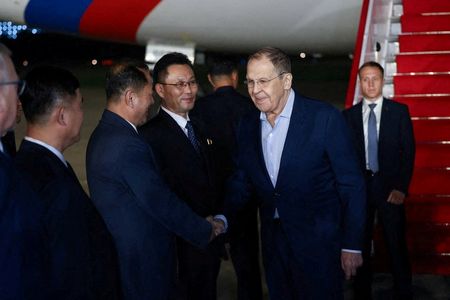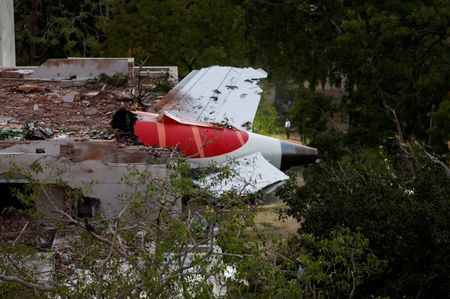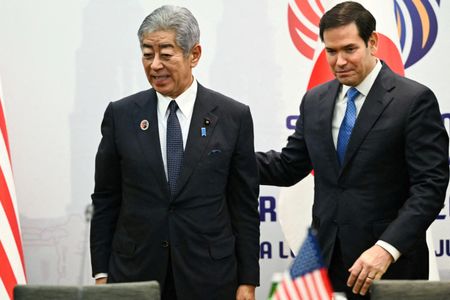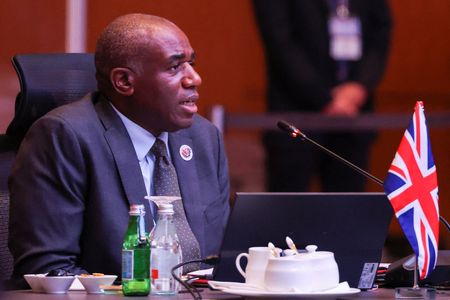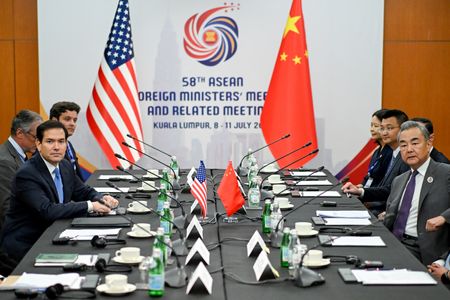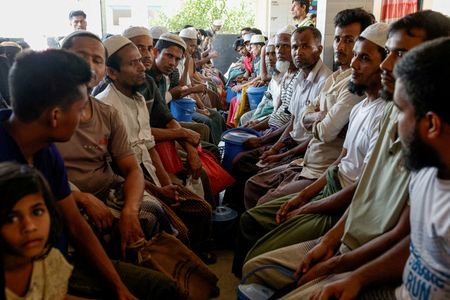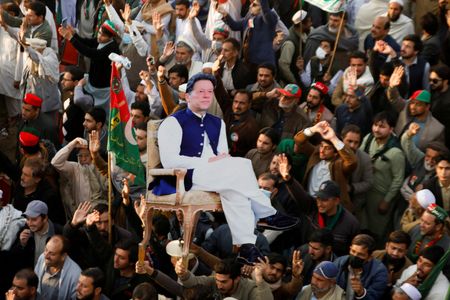SEOUL (Reuters) -Russian Foreign Minister Sergei Lavrov arrived in North Korea on Friday, North Korea’s state media KCNA said on Saturday, the latest visit by a senior Russian official to the isolated state amid warming ties between the countries.
Lavrov’s visit, scheduled to Sunday, includes a meeting between the countries’ foreign ministers, KCNA reported.
Lavrov flew out of the Malaysian capital Kuala Lumpur following the ASEAN foreign ministers’ meeting and arrived in Wonsan, North Korea’s eastern coastal city, which is home to a recently opened resort and known for its missile and naval facilities.
Lavrov’s visit is the latest high-level meeting between the two countries amid a dramatic upgrading of their strategic cooperation that now includes a mutual defence pact.
The South Korean intelligence service has said North Korea may be preparing to deploy additional troops in July or August, after sending more than 10,000 soldiers to fight with Russia in the war against Ukraine.
North Korea has agreed to dispatch 6,000 military engineers and builders for reconstruction in Russia’s Kursk region, where Ukrainian forces launched a mass cross-border incursion nearly a year ago.
Russian news agencies also reported Lavrov’s arrival and said after North Korea he is expected to travel to China to attend the Shanghai Cooperation Organisation meeting, which is set to take place on Monday and Tuesday.
Russia’s state TASS news agency said Lavrov and his North Korean counterpart, Choi Son Hui, would discuss the 40-month-old Ukraine conflict and the situation on the Korean peninsula.
TASS said the new coastal resort could boost Russian tourism to North Korea, citing the resumption of direct trains from Moscow to Pyongyang and a project to build a bridge across the Tumen River forming part of the boundary between North Korea, China and Russia.
TASS quoted Deputy Russian Foreign Minister Andrei Rudenko as saying more high-level delegations would visit North Korea later this year.
Rudenko said the accord on strategic partnership “clearly meets the changing needs over recent decades and strengthens traditionally friendly, good-neighbourly Russian-Korean relations to a qualitatively new level as allies.”
(Reporting by Heekyong Yang and Jack Kim; Additional reporting by Ron Popeski, Editing by Rod Nickel and Chris Reese)

